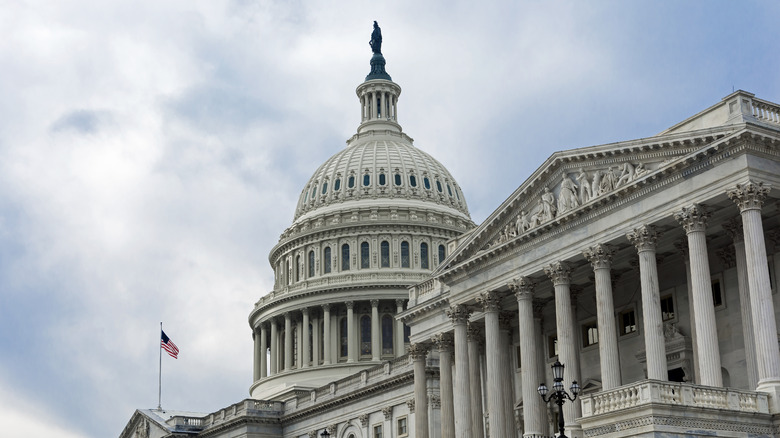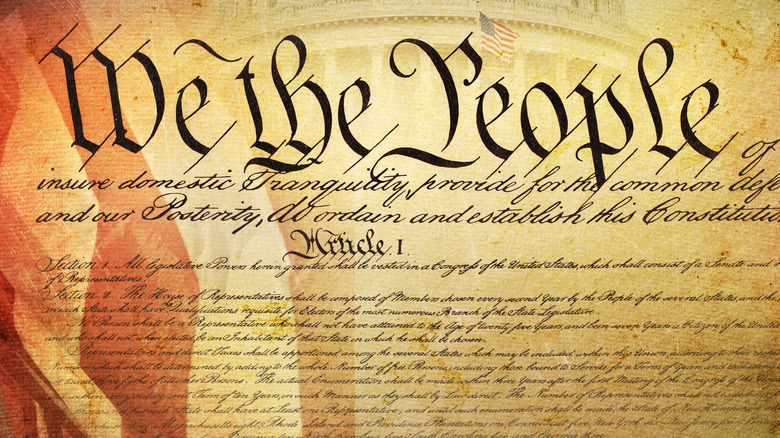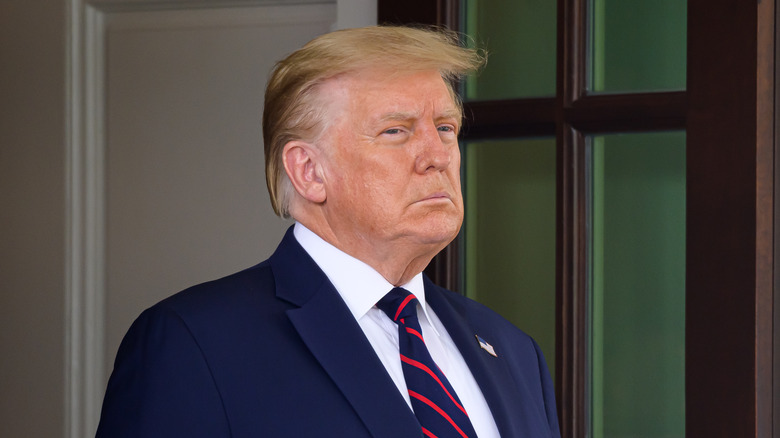Does The Speaker Of The House Have To Be A Member Of Congress?
In January 2023, as NBC News reports, the 118th Congress got off to a bad start when Republican Kevin McCarthy (above) failed to get a majority of votes after several ballots. It was and is a rare occurrence when a vote for speaker fails to produce a winning candidate on the first ballot; as CBS News reports, only 14 Congresses have failed to produce a winner on the first ballot, and 13 of those votes took place before the Civil War.
cIf the members of the House continue to fail to elect a speaker, is it possible that someone who is not a member of Congress could be put up as a compromise candidate? It's theoretically possible, actually, and as regards the 118th Congress, Representative Lauren Boebert suggested that she may support former President Donald Trump for the job of speaker (via Newsweek). That would certainly be unprecedented, but it does appear that the U.S. Constitution leaves room for the idea of an outsider being elected speaker.
What The Constitution Says
Officially, the Constitution lays out how the federal government is and is not to operate. Unofficially, parts of it are ambiguous, incomplete, and/or open to interpretation. Nevertheless, as regards the role of speaker of the House, the document is abundantly clear: "The House of Representatives shall chuse [sic] their Speaker and other Officers." That's it. It does not specify that the speaker must come from within the ranks of representatives, nor does it forbid anyone from outside the ranks of the House of Representatives to hold that job.
But does silence equal approval? The Clerk of the House and the office of the House Historian both seem to be on the same page about this: Though the speaker of the House has always been himself or herself a representative, it is not necessarily required. Theoretically, anyway, that means that someone could get that job even though they're not themselves a member of Congress.
Regardless, David Forte, a constitutional scholar at Cleveland State University, isn't feeling it. "Nothing fits that would make the speaker anything other than a member of the house," he says, per NBC News. Further still, should a non-representative be elected to speaker, the guy who lost could still sue, drawing in the courts and muddling the picture even further.
It's Almost Certain To Never Happen
Historically, it seems that members of Congress have generally been loath to cast votes for people who aren't members of Congress for leadership positions. Of the literally tens of thousands of ballots that have been put into the Congressional box over the centuries when it comes to electing speakers, only a handful of them has been for non-representatives. Further, as the Christian Science Monitor reports, in 1997, two retired Congress members got votes, as did one retired Congress member in 2013 and a former secretary of state that same year.
As regards Donald Trump being elected speaker of the House, it wasn't likely to happen, in no small part because he didn't seem to want the job. What public statements he's made about the matter seem to indicate that he was bullish on Kevin McCarthy getting the job, as NBC News reported.


